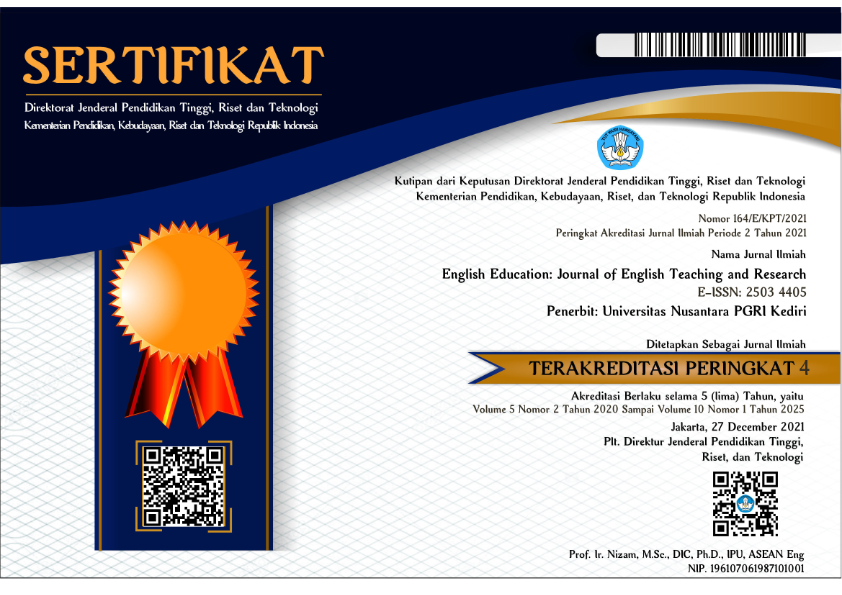ENHANCING FOR VOCABULARY MASTERY THROUGH MNEMONICS KEYWORD METHOD TO THE UNIVERSITY STUDENTS
DOI:
https://doi.org/10.29407/jetar.v2i1.725Abstract
This research is focused on mnemonic keyword method to enhance vocabulary mastery to the university students. Mnemonic refers to instructional or learning strategies designed specifically to enhance memory. One of the most powerful mnemonic strategies is the key word method. The keyword method is a useful mnemonic aid which can help broaden students’ vocabulary by means of speech and ultimately with reading and writing. Then keyword method effective way to provide a meaningful visual image upon which to base memory for a new word's meaning. This research involves twenty students at the first grade. The research instruments of this study are consisted of tests, observation checklist, and a questionnaire. This study was class action research. From the cycle 1 reflection result, some procedures and activities were revised. Different from the cycle 2, the researcher used mnemonic keyword method and there is no reflection. The enhancement of students’ vocabulary mastery shows with individual test and got mean score 67.75 in the cycle 1 and 79.75 in the cycle 2.In addition the enhancement of students’ vocabulary mastery in group test and got mean score 72.00 in the cycle 1 and increased to be 81.00 in the cycle 2. In this result, it shows there enhancement for vocabulary mastery through mnemonic keyword method in the first grade students at STKIP PGRI Blitar.
Downloads
Downloads
Published
Issue
Section
License
Authors who publish with this journal agree to the following terms:
- Copyright on any article is retained by the author(s).
- The author grants the journal, the right of first publication with the work simultaneously licensed under a Creative Commons Attribution License that allows others to share the work with an acknowledgment of the work’s authorship and initial publication in this journal.
- Authors are able to enter into separate, additional contractual arrangements for the non-exclusive distribution of the journal’s published version of the work (e.g., post it to an institutional repository or publish it in a book), with an acknowledgment of its initial publication in this journal.
- Authors are permitted and encouraged to post their work online (e.g., in institutional repositories or on their website) prior to and during the submission process, as it can lead to productive exchanges, as well as earlier and greater citation of published work.
- The article and any associated published material is distributed under the Creative Commons Attribution-ShareAlike 4.0 International License








 Article template
Article template



